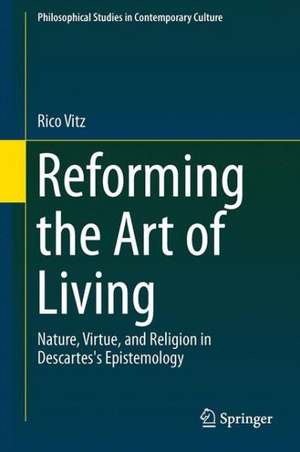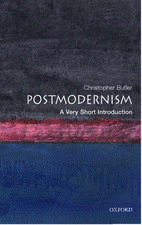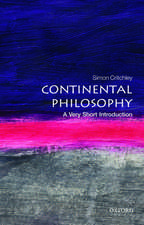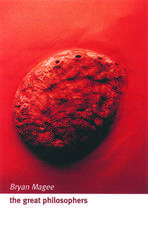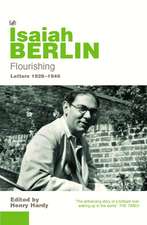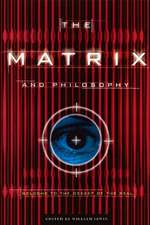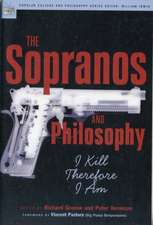Reforming the Art of Living: Nature, Virtue, and Religion in Descartes's Epistemology: Philosophical Studies in Contemporary Culture, cartea 24
Autor Rico Vitzen Limba Engleză Hardback – 8 dec 2014
Reforming the Art of Living seeks to rectify this rather common oversight in two ways. First, it aims to elucidate the nature of Descartes’s account of virtuous belief formation. Second, it aims both (i) to illuminate the social significance of Descartes’s philosophical program as it relates to the understanding and practice not of science, but of religion and (ii) to develop a kind of Leibnizian critique of this aspect of his program. More specifically, it aims to show that Descartes’s project is “dangerous,” insofar as it is subversive not only of traditional Christianity but also of other traditional forms of religion, both in theory and in practice.
| Toate formatele și edițiile | Preț | Express |
|---|---|---|
| Paperback (1) | 380.84 lei 6-8 săpt. | |
| Springer International Publishing – 10 sep 2016 | 380.84 lei 6-8 săpt. | |
| Hardback (1) | 387.96 lei 6-8 săpt. | |
| Springer International Publishing – 8 dec 2014 | 387.96 lei 6-8 săpt. |
Din seria Philosophical Studies in Contemporary Culture
- 15%
 Preț: 641.38 lei
Preț: 641.38 lei -
 Preț: 390.08 lei
Preț: 390.08 lei -
 Preț: 383.93 lei
Preț: 383.93 lei - 15%
 Preț: 643.34 lei
Preț: 643.34 lei - 18%
 Preț: 950.96 lei
Preț: 950.96 lei - 15%
 Preț: 640.55 lei
Preț: 640.55 lei - 15%
 Preț: 643.84 lei
Preț: 643.84 lei - 15%
 Preț: 640.55 lei
Preț: 640.55 lei - 15%
 Preț: 634.18 lei
Preț: 634.18 lei - 15%
 Preț: 645.60 lei
Preț: 645.60 lei - 20%
 Preț: 558.87 lei
Preț: 558.87 lei - 15%
 Preț: 641.03 lei
Preț: 641.03 lei - 15%
 Preț: 647.08 lei
Preț: 647.08 lei - 20%
 Preț: 570.72 lei
Preț: 570.72 lei - 15%
 Preț: 589.97 lei
Preț: 589.97 lei -
 Preț: 387.96 lei
Preț: 387.96 lei - 18%
 Preț: 777.50 lei
Preț: 777.50 lei - 15%
 Preț: 703.06 lei
Preț: 703.06 lei - 15%
 Preț: 643.48 lei
Preț: 643.48 lei - 18%
 Preț: 1237.14 lei
Preț: 1237.14 lei - 18%
 Preț: 953.82 lei
Preț: 953.82 lei - 18%
 Preț: 1114.83 lei
Preț: 1114.83 lei - 15%
 Preț: 635.47 lei
Preț: 635.47 lei - 15%
 Preț: 635.65 lei
Preț: 635.65 lei - 15%
 Preț: 642.68 lei
Preț: 642.68 lei
Preț: 387.96 lei
Nou
Puncte Express: 582
Preț estimativ în valută:
74.24€ • 77.70$ • 61.79£
74.24€ • 77.70$ • 61.79£
Carte tipărită la comandă
Livrare economică 31 martie-14 aprilie
Preluare comenzi: 021 569.72.76
Specificații
ISBN-13: 9783319052809
ISBN-10: 3319052802
Pagini: 190
Ilustrații: XII, 154 p.
Dimensiuni: 155 x 235 x 17 mm
Greutate: 0.41 kg
Ediția:2015
Editura: Springer International Publishing
Colecția Springer
Seria Philosophical Studies in Contemporary Culture
Locul publicării:Cham, Switzerland
ISBN-10: 3319052802
Pagini: 190
Ilustrații: XII, 154 p.
Dimensiuni: 155 x 235 x 17 mm
Greutate: 0.41 kg
Ediția:2015
Editura: Springer International Publishing
Colecția Springer
Seria Philosophical Studies in Contemporary Culture
Locul publicării:Cham, Switzerland
Public țintă
ResearchCuprins
Acknowledgements.- Introduction.- Cartesian Meditation and the Pursuit of Virtue.- The Cartesian Framework.- Morality as a Cosmopolitan Art.- Virtuous Belief Formation.- Virtue, Volition, and Judgment.- Natural Beatitude and Religious Reform.- The Subversion of Traditional Christianity.- Conclusion.- Bibliography.
Textul de pe ultima copertă
Descartes’s concern with the proper method of belief formation is evident in the titles of his works—e.g., The Search after Truth, The Rules for the Direction of the Mind, and The Discourse on Method of rightly conducting one’s reason and seeking the truth in the sciences. It is most apparent, however, in his famous discussions, both in the Meditations and in the Principles, of one particularly noteworthy source of our doxastic errors—namely, the misuse of one’s will. What is not widely recognized, let alone appreciated and understood, is the relationship between his concern with belief formation and his concern with virtue. In fact, few seem to realize that Descartes regards doxastic errors as moral errors and as sins both because such errors are intrinsically vicious and because they entail notably deleterious social consequences.
Reforming the Art of Living seeks to rectify this rather common oversight in two ways. First, it aims to elucidate the nature of Descartes’s account of virtuous belief formation. Second, it aims both (i) to illuminate the social significance of Descartes’s philosophical program as it relates to the understanding and practice not of science, but of religion and (ii) to develop a kind of Leibnizian critique of this aspect of his program. More specifically, it aims to show that Descartes’s project is “dangerous,” insofar as it is subversive not only of traditional Christianity but also of other traditional forms of religion, both in theory and in practice.
Reforming the Art of Living seeks to rectify this rather common oversight in two ways. First, it aims to elucidate the nature of Descartes’s account of virtuous belief formation. Second, it aims both (i) to illuminate the social significance of Descartes’s philosophical program as it relates to the understanding and practice not of science, but of religion and (ii) to develop a kind of Leibnizian critique of this aspect of his program. More specifically, it aims to show that Descartes’s project is “dangerous,” insofar as it is subversive not only of traditional Christianity but also of other traditional forms of religion, both in theory and in practice.
Caracteristici
Analyses Descartes’s systematic account of virtuous belief formation Explains Descartes’s account from the perspective of his own eclectic, cosmopolitan account of virtue Demonstrates the account of belief formation's lasting social significance
